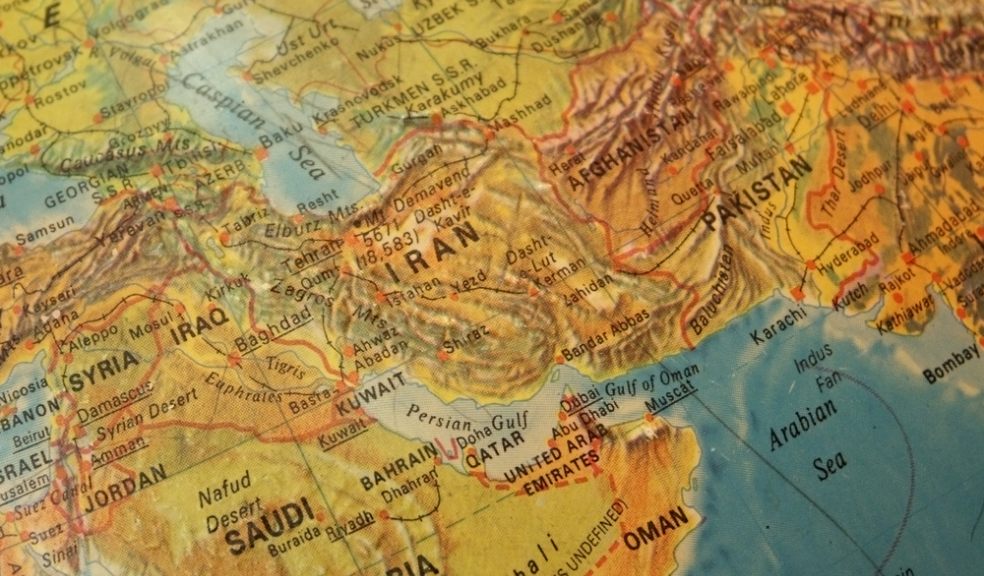
Exeter academic contributes to key Gulf report
A Middle East expert from the Strategy and Security Institute and the Institute of Arab and Islamic Studies at the University of Exeter has co-authored a major report focusing on the UK’s strategic reorientation of its defence and security in the Gulf.
The report is from the Royal United Services Institute (RUSI) an independent think-tank for defence and security which advises governments and the wider policy community.
For the first time since the UK unceremoniously left the Gulf in 1971, a coherent strategy for a "return to east of Suez" is emerging, according to the new paper by Exeter’s Professor Gareth Stansfield and Dr Saul Kelly from Kings College London. The report: A Return to East of Suez? UK Military Deployment to the Gulf, assess public statements which point to the current British government's commitment to deepening the strategic defence relationship in the Gulf and argue the UK is taking on this burden both out of necessity and of desire.
The paper highlights the UK's "return east of Suez" is more evolutionary than revolutionary and only partially related to the US pivot towards the Pacific. Professor Stansfield who is also a Senior Associate Fellow and Director of Middle East Studies at RUSI and Dr Kelly also suggest the UK 'is giving renewed emphasis to its position in the Gulf in order to maintain the special relationship with the US' as well as engagement with the defence task in hand - namely deterring Iran.
"Just as the UK's withdrawal in 1971 created a security vacuum that drew the US, somewhat unwillingly, further into the affairs of the Gulf, the US's cooling of its engagement seems to be drawing the UK back in," write Professor Stansfield and Dr Kelly.
"With the only remaining significant operation in which the US and UK work closely together coming to an unceremonious end in 2014, there is a clear need to 'do something' if the strategy of being close to the Americans - in terms of political norms, military interconnectivities and global influence - is to be maintained."
The paper also addresses the considerable economic benefits, as well as the potential scale of the military deployment. The RAF is set to use the Al-Minhad air base in Dubai (currently used extensively in the logistics chain between the UK and Afghanistan) as a hub not only for the 2014 drawdown in Afghanistan, but as an overseas base of some standing in the future. The Royal Navy is also taking a more active interest in Bahrain, which is already home to the United Kingdom Maritime Component Command (UKMCC). Reports also suggest that senior army personnel are keen to build on their strong links with Oman. And the Emir of Qatar has reportedly been assured by Prime Minister Cameron of the UK's commitment to the gas-rich emirate, with Doha a favoured location for UK military liaison and co-ordination activities in the Gulf.
"We seem to be witnessing the slow transformation in the UK military posture towards a tentative return (at this early stage) to the pre-1971 strategy of rooting Britain's presence in the southern Gulf through agreements with its traditional allies in Abu Dhabi and Dubai, with outlying anchors in Bahrain and Oman, and with close political and economic ties with Saudi Arabia and Kuwait that could be upgraded to the military level if necessary."
Professor Michael Clarke, RUSI's Director-General, in his foreword to the study writes: "At a time of economic retrenchment and growing uncertainty within Europe, it may seem strange that the UK sees its future military security increasingly 'east of Suez'. Such an emotive phrase suggests imperial ambitions at a time when UK armed forces are smaller than they have been for 200 years. But there are compelling reasons for the UK to take its Gulf relationships much more seriously."
Professor Clarke warns "such a policy shift, if it becomes reality and is acknowledged, is not without its dangers. The military does not intend to 'deploy' to the Gulf in any significant way, but it hopes to create the facilities to rotate back and forth; to pass through; to jump off from. Even so, this might represent more stretch on an already overstretched military establishment."
The paper also suggests there is significantly more at stake in this renewed relationship than mere military posturing: 'By enhancing the UK's relationships with the states of the southern Gulf, the UK is committing to the security and longevity of the Arab Gulf states - sheikhdoms which display only limited elements of democratisation (as understood in the West) and which have taken seemingly contradictory positions towards the Arab upheavals that spread across the Middle East since 2011, opposing the Shia revolt in Bahrain but supporting the Islamist revolutions in Tunisia, Libya, Egypt and Syria. The UK will also find itself very much on the fault line of searing sectarianism, between the Sunni and Shia worlds of Islam, that is increasingly defining the geopolitical landscape of Gulf and Middle Eastern security.'
'"The UK could very quickly find itself with significant military forces based in one of the world's most contested regional security complexes," the study warns.
"If the UK is serious in its reformulating its focus on the Gulf, once again, then a straightforward question needs to be answered: what is the strategic purpose of the return 'east of Suez'?"
"If it is to deter Iran, then this requires a strategy that is multifaceted and coalition-based, underpinned by the ready availability of a credible and significant military force. If it is only to strengthen the UK's ties to the Arab Gulf states for a range of reasons including an increase in defence sales, trade and investment, then this should be acknowledged publicly and it should be explained that such limited engagements are necessary at a time when the entire region is in a state of political flux. The military-strategic and political lines of operation can be mutually complementary, but they need to be articulated as such in order to ensure a clear, readily understood British policy and strategy regarding the Gulf," conclude the authors.











